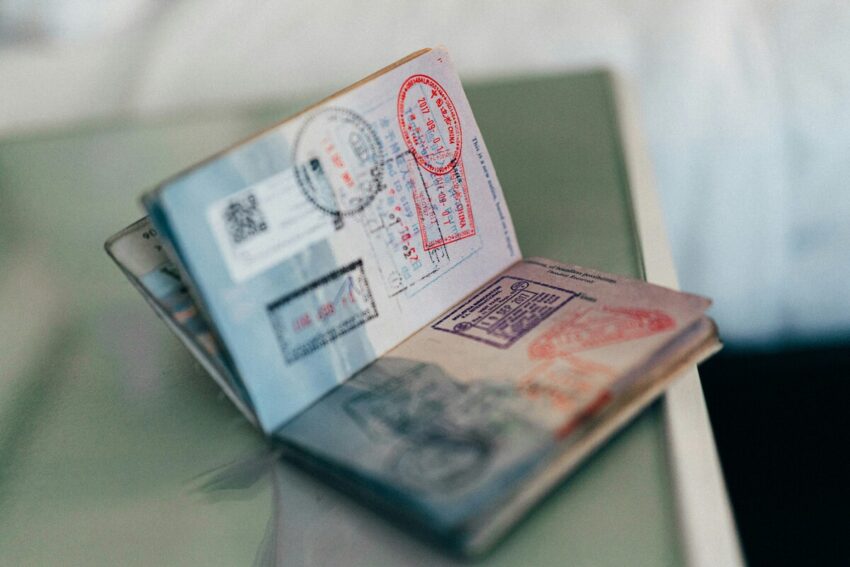These are crazy times as a wide net is cast over all categories of immigrants in the US. It is one thing to debate whether immigration policies are helpful or harmful in the abstract. It is another thing when you know real immigrant families who live in the US with legal status, who play by the complicated rules, work hard, and pay taxes, but are now receiving letters that they must leave the US. A friend just told me of a Christian Afghan family in another state. They are here with legal status but received a letter to self-deport within seven days! The church leader who is trying to help them sort this out is fearful that his attempt to advocate will bring ICE to their doorstep. He is not alone. I just attended a community meeting led by three local refugee resettlement organizations. Bear in mind that a refugee is a legal status that requires significant vetting before they are approved to live in the US. Fear is rampant among them. Understandably. One young Iraqi man waited years to immigrate to the safety of the US and escape fear and danger in his home country. Now he is fearful of living here. Refugee members of the Congolese Multination church at Southeast are also afraid. Some fear—wrongly, I hope—they, too, could be deported. Others fear for family members who were approved to join them, but are left in limbo. A Haitian couple that cleans the church needed help finding an immigration lawyer because their Temporary Protected Status (TPS) will soon expire.
This is disheartening to say the least, that so many vulnerable people are targeted for expedited removal and deportation. Most escaped from unsafe places of persecution and danger. Many are already traumatized. Some are victims of torture. The majority—62% according to Pew Research—are kindred in Christ. Those with refugee or TPS status finally arrived in the US—legally—with the hope of starting over from nothing, and now they are having the rug jerked from under them. This cannot be pleasing to God, who speaks clearly, boldly, and repeatedly about immigrants throughout Scripture. God told Israel, “He defends the cause of the fatherless and the widow, and loves the foreigner residing among you, giving them food and clothing. And you are to love those who are foreigners, for you yourselves were foreigners in Egypt” (Deut 10:18-19).
I’m told I need to clarify that I’m not in favor of so-called “open borders.” Any sovereign nation needs to have controls on who is allowed in and who is granted the rights and responsibilities of citizenship. We also should to remove criminal immigrants who are a danger to the community. In any case, politicians have failed to provide reasonable immigration reform for too long. We need updated laws that allow for a foreign workforce to meet current economic demands. We also need laws that permit refugees fleeing political and religious persecution to make a life here. Local churches have often borne much of the burden for resettlement, whether the refugee family is Christian or not. In either case, it is a beautiful testimony of the church caring for the stranger and foreigner. And that has always been my point.
Here’s an interesting link from the National Association of Evangelicals citing a Lifeway Research poll from 2024. According to the poll, “while two-thirds of evangelicals in the United States are aware of what the Bible teaches about how immigrants should be treated, only 26 percent say that the Bible actually shapes their views on immigration. This reveals a disconnect between biblical teaching and lived convictions. As a result, some evangelicals may overlook the critical role the immigrant church plays in revitalizing American evangelicalism, especially amid the challenging realities immigrants face in this country.” In my own research of the African congregation that meets at my home church, several distinct strengths emerged, which are gifts to the church and our country. First, they are people committed to prayer. They pray a lot and truly depend on God. Second, they care deeply for each other in their close-knit community, which is also extremely welcoming to others. They are a praiseworthy model of mutual care and concern of the many—over fifty—one-another exhortations in the New Testmant! Third, they are committed to reaching and serving other immigrants and refugees. And they are effective at it. There are other things, but I want to mention one more because it is a special gift to the church. My home church, Southeast Christian, of which the African Multination congregation is a part, is doing a sermon series called “Temporary Residents.” Our immigrant brothers and sisters have keen insight into this critical biblical virtue regarding our short sojourn on this version of the earth. Indeed, not only can we learn from them about prayer and caring deeply for each other, but also how they model a pilgrim antidote to the idolatry of culture. After all, according to the Holy Scriptures, as God’s elect, we are foreigners and strangers on the earth (Heb 11:13; 1 Peter 1:1). We can still be patriotic and grateful to God for the freedom and prosperity we have in the US. After all, culture and nations are also ordained by God. But our first and primary allegiance and citizenship is to the borderless kingdom of God. The Bible makes it clear that true “…citizenship is in heaven, and we eagerly await a Savior from there, the Lord Jesus Christ.” (Phil 3:20) Alleluja!
As part of the family of God and the body of Christ, we are called to love immigrants as an act of obedience to a God who loves them more deeply. We don’t get to make excuses by calling some “illegal” or worse. As the church, we have an obligation of care and compassion for the most vulnerable, including the foreigner and alien. Zach Szmara of Immigrant Connection, comments on Matthew 25, where Jesus describes a final judgement in which He sits on His throne to judge the nations (ethne) based on their actions. “Notice that he is not separating individuals, although individual accountability is likely included; instead, he focuses on groups of people, based on their collective actions and systems. When Jesus says, ‘…I was a foreigner/immigrant and you invited me in,…’ he is describing the most vulnerable of his followers (Matt 25:35).” What we do or don’t do for “the least of these” is the same as doing it for Jesus. The consequences of our actions are starkly different: eternal punishment or eternal life. I’m not suggesting that our eternal destinies are tied to actions, because we are saved by the grace of God alone (Eph 2:8). It is also true that our actions—or inaction—often reflect the attitude of our hearts. I have a funny feeling that when we look back someday, we will discover that the current anti-immigrant atmosphere and unjust deportation of vulnerable neighbors without due process will not only not make America great, but will also weaken us as a country and perhaps incur the righteous judgment of God on our heads, to boot.
Meanwhile, we pray and call on those with political power and privilege to act justly and love mercy in governing, legislating, and executing policies that impact so many vulnerable people. And even if they don’t, we still have hope for better things, because we, “…know that the Lord secures justice for the poor and upholds the cause of the needy” (Psalm 140:12). Amen

